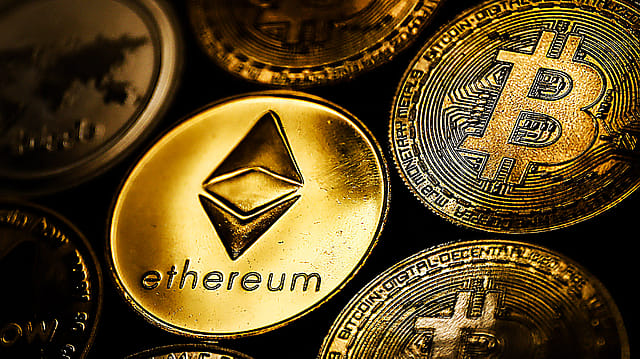Cybercriminals laundered cryptos worth $8.6 bn in 2021; DeFi thefts up 1,330%
ADVERTISEMENT

Crypto-based crimes hit a new all-time high in 2021, with illicit addresses receiving $14 billion over the course of the year, up from $7.8 billion in 2020. Of this, around $8.6 billion worth of crypto was laundered by cybercriminals, up 30% from $6.6 billion a year ago, the Crypto Crime Report 2022 by blockchain data platform Chainalysis shows.
The Chainalysis crypto crime report, in essence, justifies the concerns raised by the Modi government around the use of crypto for illicit means like money laundering and terror financing. This is one of the prime reasons, as per the Centre, that digital currencies have received no legal status in India so far. However, the government is planning to come up with regulations around them soon.
The report also flags that cryptos worth $10 billion were held by illicit addresses as of early 2022. Most of these are wallets associated with crypto theft.
Since 2017, cybercriminals have laundered crypto worth $33 billion, with most of the total overtime moving to centralised exchanges. DeFi, abbreviation for decentralised finance, protocols saw the most growth by far in usage for money laundering at 1,964%. DeFi is a system that offers financial instruments without relying on intermediaries.
“In nearly all of these cases, developers have tricked investors into purchasing tokens associated with a DeFi project before draining the tools provided by those investors, sending the token’s value to zero in the process.”
The report says funds worth $2.3 billion were stolen from DeFi platforms in particular, and the value stolen from these protocols catapulted 1,330%.
At the year’s end, criminals held $11 billion worth of funds with known illicit sources, compared to just $3 billion at the end of 2020. Also, stolen funds accounted for 93% of all criminal balances at $9.8 billion at the end of 2021. Darknet market funds are next at $448 million, followed by scams at $192 million, fraud shops at $66 million, and ransomware at $30 million, the report shows.
Overall, Chainalysis identified 4,068 criminal whales – crypto criminals stealing the digital currency from enterprises –holding crypto worth $25 billion in 2021. They represent 3.7% of all cryptocurrency whales — that is, private wallets holding over $1 million worth of cryptocurrency.
In total, 1,333 criminal whales received between 25% and 90% of all funds from illicit addresses. "The lowest-share bucket is the biggest — 1,374 criminal whales received between 10% and 25% of their total balance from illicit addresses. However, the largest-share bucket is close behind, with 1,361 criminal whales that received between 90% and 100% of their total balance from illicit addresses," the report shows.
It also looked at other forms of crypto-related crimes like ransomware threat, nation-state actors’ role in crypto-based crime and illicit activity in NFTs.
The central bank has also backed a ban on cryptocurrencies in India, citing risks to financial instability, even though PM Modi in December had said such emerging techs should not be undermined but used to empower people.
As per a Chainalysis estimate, India is one of the fastest-growing crypto markets, which spiked 641% between July 2020 and June 2021. Some estimates show that Indian crypto investors hold assets worth over $6 billion in different digital currencies including Bitcoin and Ethereum.
India has however imposed a 30% tax on all virtual digital assets and a 1% tax-deductible at source (TDS) on crypto transactions.
Finance minister Nirmala Sitharaman, during a panel discussion with International Monetary Fund (IMF) managing director Kristalina Georgieva in April, had said the government doesn't recognise cryptos that are outside of the central bank. The RBI is yet to come up with a digital currency, which is expected in 2022-23.
She said the Centre wanted to make sure it is keeping a trail and crypto transactions were compliant with anti-money laundering rules. “We wanted to make sure these tools don't end up, inadvertently, being used to fund any kind of terror activities," she added.
"It's not if we have legitimised them. We have not legitimised the currency. We haven't said that this has intrinsic value. But certain operations are taxable for the sovereign," she added.